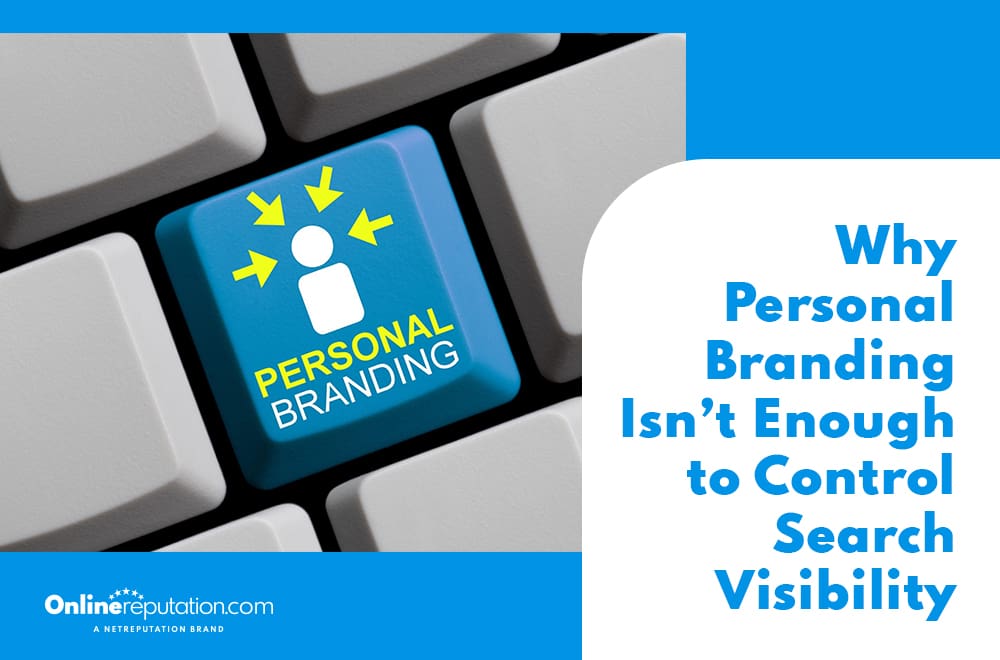
Personal branding is essential—but it’s not everything. It helps professionals, creators, and leaders craft a clear, compelling narrative that showcases their values and expertise. A strong personal brand builds trust, boosts credibility, and opens doors. But it doesn’t guarantee control over how you’re found—or judged—online. That’s where search visibility steps in. And it’s shaped by forces far beyond your story.
What Is Personal Branding?
Personal branding is the intentional act of defining and sharing your unique identity. It reflects your identity, values, and skill set, and positions you to connect meaningfully with your audience.
From consistent visuals (like headshots and logos) to your tone on LinkedIn or personal blogs, personal branding is about being transparent, consistent, and authentic. Leaders at Harvard Business School and beyond emphasize that authenticity fosters trust and a strong reputation. However, authenticity alone won’t determine what appears first in a Google search.
Why Personal Branding Matters—But Has Limits
A strong personal brand gives people a reason to take an interest. It shows who you are and what you stand for.
Tools like LinkedIn, Twitter bios, and personal websites help showcase your story and highlight your professional achievements. Many thought leaders utilize these platforms to expand their networks, secure new roles, and establish their authority.
However, even the best personal brand won’t guarantee search visibility. You don’t control everything attached to your name online.
Why Personal Branding Doesn’t Guarantee Search Control
1. Search Engines Rely on Signals You Don’t Control
Search rankings depend on domain authority, backlinks, content relevance, and freshness. That’s why an old article from a high-authority site might outrank your polished personal site, even if it barely reflects who you are.
2. You’re Competing With Bigger Names
If your name overlaps with that of a company, celebrity, or public figure, your content may be overlooked, regardless of its quality. Bigger brands often dominate due to stronger SEO, deeper backlinks, and higher traffic.
3. Negative or Outdated Content Can Hijack Results
One outdated post, an irrelevant directory listing, or a low-quality blog mention can overshadow your best work. Reputation threats don’t always reflect who you are today, but they can shape first impressions.
4. Algorithms Don’t Recognize Story or Effort
Search engines don’t see nuance. They rank based on structure, keywords, and backlinks—not authenticity or passion. That’s why you need a strategy, not just storytelling.
Why Many Struggle With Personal Branding Alone
Too often, people believe a well-crafted narrative will automatically surface in search results. But that’s not always true. Most don’t have the technical knowledge—or time—to optimize their content for search. And even great storytellers can be outranked by less relevant but better-optimized content.
This disconnect suggests that personal branding alone is insufficient. You need a more comprehensive strategy to shape your online presence effectively.
What Actually Drives Search Visibility?
To build a digital presence that reflects your brand, you need more than visibility—you need control. Here’s what helps:
1. Search Engine Optimization (SEO)
Use targeted keywords, optimize page titles and metadata, write with search intent in mind, and regularly update your content. SEO helps your personal brand show up when it matters.
2. Content Strategy
Regularly publish high-quality blog posts, interviews, videos, and thought pieces. This builds authority, reinforces your message, and improves your ranking for multiple searches.
3. Reputation Management
Track what’s out there. Address misinformation, push outdated content down, and create positive assets that align with your brand. Sometimes, it’s about controlling what doesn’t show up.
4. Media Coverage and Mentions
Features in reputable publications boost credibility and domain authority. A guest quote or expert mention in a respected outlet can lend more weight to your personal brand in search results.
The Bottom Line: Brand for People, Optimize for Search
Your personal brand tells the world who you are. But search visibility shapes what the world sees first. To succeed, you need both.
Build your story with care. Stay consistent. Then support it with smart SEO, active reputation monitoring, and strategic content distribution. That’s how you build a brand that’s not just visible, but valuable.
Final Thoughts
Personal branding is powerful. It fosters connections, builds trust, and opens up opportunities. But on its own, it doesn’t control your digital footprint.
To truly manage your online presence, pair your brand with a strategic approach. SEO, content, and digital reputation tools can help you protect your name, highlight your value, and make sure the right people find you, for the right reasons.
Want to be found on your terms? Start with your story. Then, make sure the search results convey it just as well.
You might also like
Celebrity Reputation Management: Protecting Your Image
Personal branding is essential—but it’s not everything. It helps professionals, creators, and leaders craft a clear, compelling narrative that showcases …

